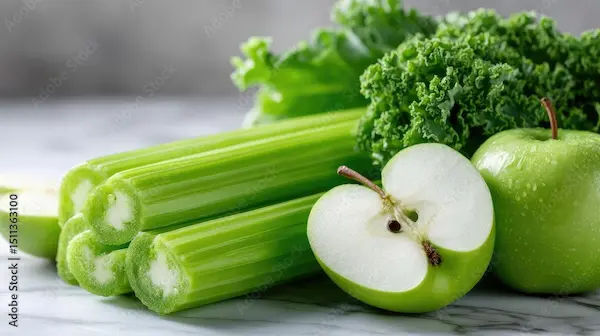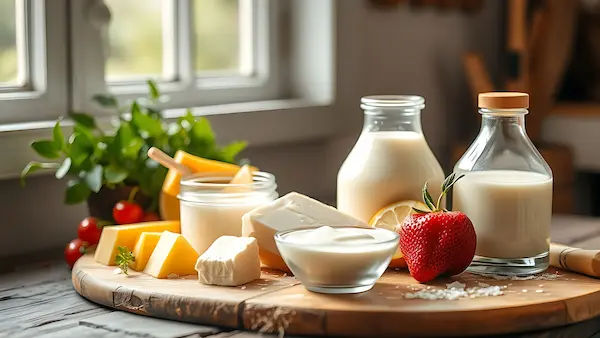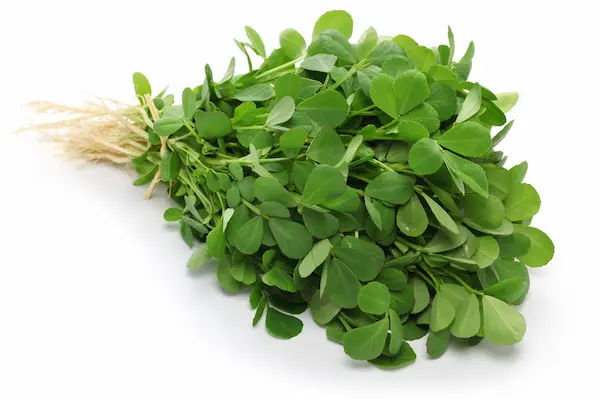Top 18 Zinc-Rich Foods for Vegetarians and Vegans
Discover 18 zinc-rich foods for a vegetarian diet. Immune-boosting foods, tasty plant-based picks, and smart absorption tips.

Written by Dr. Dhankecha Mayank Dineshbhai
Reviewed by Dr. Vasanthasree Nair MBBS
Last updated on 13th Jan, 2026

Introduction
If you follow a vegetarian diet or eat 100% plant-based, getting enough zinc is essential for everyday health. Zinc supports immune function, wound healing, and a normal sense of taste and smell—and it helps your body grow and repair. The good news: there are many zinc-rich foods in the plant kingdom. Below, you’ll find 18 easy, tasty options and smart tips to get the most from them. These choices can fit into an immune-supportive routine and sit comfortably among your go-to immune-boosting foods.
Consult a Top Nutritionist for Personalised Advice
Why Zinc Matters?
Zinc is essential for the following reasons:
- Immunity: Zinc helps your immune system work properly and supports your body’s defence against infections.
- Wound healing and skin: It’s involved in tissue repair and skin integrity.
- DNA and proteins: Zinc plays a role in DNA synthesis and building proteins.
- Taste and smell: Adequate zinc helps maintain normal taste and smell.
Trusted health organisations, including NIH and WHO, emphasise zinc’s importance across the lifespan.
How Much Zinc Do You Need?
For most healthy adults, the Recommended Dietary Allowance (RDA) is:
- Women (19+): 8 mg/day
- Men (19+): 11 mg/day
- Pregnancy: 11 mg/day
- Lactation: 12 mg/day
Upper Limit (UL) for adults: 40 mg/day from food and supplements combined. Exceeding this regularly can lead to side effects and reduce copper absorption. Always check with your clinician before starting supplements.
Zinc on a Vegetarian Diet: Absorption Basics
Plant foods often contain phytates (natural compounds in whole grains, legumes, nuts, and seeds) that can reduce zinc absorption. Practical ways to help your body access more zinc from plant foods include:
- Soak, sprout, or ferment: These methods can lower phytate content in beans, grains, nuts, and seeds.
- Choose leavened breads: Yeast fermentation (including sourdough) can improve zinc bioavailability in whole-grain breads.
- Vary your sources: Rotate legumes, soy foods, nuts, seeds, and fortified foods across the week.
Because of phytates, some vegetarian and vegan eaters may need somewhat more zinc than omnivores to meet their needs. Thoughtful food choices usually cover the gap.
Top 18 Zinc-Rich Foods for Vegetarians and Vegans
The list below focuses on whole, minimally processed, and widely available foods. Fortified options are included because they’re an efficient way to meet daily needs. Amounts of zinc vary by brand and preparation; check labels when available.
Legumes and Soy Foods
These include:
Chickpeas
Versatile and satisfying, chickpeas work in stews, curries, salads, and hummus. Try roasting them with spices for a crunchy snack.
Lentils
Green, brown, or red lentils are quick to cook and great in soups, dal, or hearty salads. They pair well with lemon, tomatoes, and herbs.
Black Beans (or Kidney Beans)
Excellent in burrito bowls, tacos, chili, or bean salads. Rinse canned beans to reduce sodium.
Edamame (Green Soybeans)
Steam or boil and sprinkle with sea salt, chili flakes, or sesame. Add shelled edamame to grain bowls and stir-fries.
Tofu
Extra-firm tofu browns nicely for stir-fries, sheet-pan meals, and tacos. Silken tofu blends into smoothies and soups.
Tempeh
Fermented soy with a nutty taste. Slice, marinate, and pan-sear, or crumble into sauces and tacos. Fermentation may support better mineral availability.
Nuts and Seeds
These include:
Pumpkin Seeds (Pepitas)
- A standout for plant-based zinc. Sprinkle on oatmeal, salads, and soups, or blend into pesto.
- Roasting enhances flavour.
Hemp Seeds
Mild and soft. Stir into yoghurt alternatives, smoothies, or sprinkle over avocado toast for a zinc-and-protein lift.
Sesame Seeds and Tahini
Tahini (sesame paste) works in dressings, dips, and sauces. Drizzle tahini-lemon sauce over roasted vegetables and grain bowls.
Cashews
Snack on them plain, or use in creamy plant-based sauces. Lightly toast to bring out flavour.
Peanuts and Peanut Butter
Budget-friendly and accessible. Add to oatmeal, spread on whole-grain toast, or toss roasted peanuts into stir-fries.
Sunflower Seeds
Toss onto salads, grain bowls, or mix into homemade trail mix. Sunflower seed butter is a good nut-free option.
Whole Grains and Grain Products
These include:
Oats
Warm oatmeal, overnight oats, or baked oat bars make easy meals. Pair with pumpkin seeds or peanut butter to boost zinc per serving.
Quinoa
A complete-protein pseudo-grain that cooks fast. Use as a base for bowls or in grain salads with beans and veggies.
Wheat Germ
Nutrient-dense and rich in minerals. Stir into smoothies or sprinkle over yoghurt alternatives, cereal, or salads.
Sourdough Whole-Wheat Bread
Leavening and sourdough fermentation can improve zinc availability compared with some unleavened options. Top with hummus or nut/seed butters.
Fortified Foods
These include:
Fortified Breakfast Cereals
Many cereals are fortified with zinc and can provide a substantial portion of your daily needs per serving. Check the Nutrition Facts panel and choose options lower in added sugar.
Fortified Plant Milks (e.g., Soy, Pea, Oat)
Brands vary widely. Look for plant milks fortified with zinc (and calcium, vitamin D, and B12). Use in smoothies, oatmeal, or with fortified cereal for a double boost.
Smart Ways to Build a Zinc-Rich Plate
The smart ways to enrich your diet with zinc include:
- Mix and match: Combine legumes (chickpeas, lentils), soy (tofu, tempeh), and seeds (pumpkin, hemp) across meals.
- Use toppers: A tablespoon of tahini or a handful of seeds adds an easy zinc nudge to salads and bowls.
- Leverage fortification: A serving of fortified cereal with fortified soy milk can cover a large share of your daily zinc.
- Plan snacks: Roasted chickpeas, trail mix with cashews and pumpkin seeds, or edamame make satisfying, zinc-forward snacks.
- Prep to absorb: Soak or sprout legumes and grains when possible; enjoy leavened whole-grain breads.
Example One-Day Plant-Based Outline (for inspiration)
The ideas for zinc zinc-rich diet are:
- Breakfast: Fortified whole-grain cereal with fortified soy milk, topped with sliced banana and a spoonful of peanut butter.
- Lunch: Quinoa–chickpea salad with cherry tomatoes, cucumber, parsley, lemon-tahini dressing, and a sprinkle of hemp seeds.
- Snack: Edamame with sea salt and chilli flakes.
- Dinner: Stir-fry with tempeh or tofu, mixed vegetables, and cashews over brown rice or whole-wheat sourdough toast.
- Evening: Oatmeal cup with cinnamon and pumpkin seeds.
Supplements and Safety
Most people can meet zinc needs with food, especially when including fortified items. A supplement may be considered if:
- Your intake is consistently low (limited variety, reduced appetite).
- You have a condition affecting absorption or higher needs (speak with your clinician).
- You’re pregnant or lactating and finding it hard to meet needs with food alone.
Caution:
- Do not exceed the adult UL of 40 mg/day unless medically supervised.
- High-dose zinc can cause nausea, reduce copper levels over time, and may interact with certain medications. Discuss supplements with a healthcare professional.
Are Zinc-Rich Plant Foods “Immune-Boosting Foods”?
No single food “boosts” the immune system, but meeting your daily zinc needs supports normal immune function. A well-balanced vegetarian diet that includes the zinc-rich foods above—alongside fruits, vegetables, whole grains, healthy fats, and adequate protein—helps your immune system work as it should.
Conclusion
Meeting daily zinc needs on a vegetarian or vegan diet is achievable with thoughtful planning. Including a mix of legumes, soy foods, nuts, seeds, whole grains, and fortified options helps cover daily zinc targets without supplements. Simple practices such as soaking, sprouting, or choosing leavened breads may help improve absorption. Rotation and variety ensure you get zinc from multiple sources throughout the week. When in doubt, fortified foods offer a convenient nutritional safety net.
Consult a Top Nutritionist for Personalised Advice
Consult a Top Nutritionist for Personalised Advice

Ms. Sushma Jaiswal
Dietician
42 Years • M.Sc.(Food & Nutrition)
Bengaluru
Swasthya Nutrition, Bengaluru

Ms. Neelanjana J
Dietician
5 Years • Bsc., Msc. Nutrition and Dietetics specialised general weight management, PCOS/PCOD weight loss and Diabetes management. A clinical dietitian with 4+ year experience specializing in evidence-based, result-oriented nutrition therapy. I have extensive experience in weight loss, thyroid management, PCOD/PCOS, weight gain, and diabetes & prediabetes care. My approach is personalized, practical, and sustainable—focusing on helping individuals achieve long-term lifestyle change rather than quick fixes. I work closely with clients to understand their medical history, lifestyle, and goals, and then design customized diet plans that support hormonal balance, metabolic health, and overall wellbeing. My goal is to make nutrition simple, realistic, and effective—so you see measurable results and feel your healthiest self.Auther in Health benefits of jackfruit (Artocarpus heterophyllus Lam.) seeds: A review (2023) The Pharma Innovation Journal Co- Auther in Malnutrition in Women: A review (2023) The Pharma Innovation Journal. Highfield Level 3 in HACCP. Highfield Level 4 International Award in Food Safety Managment
Bengaluru
Apollo Clinic, JP nagar, Bengaluru

Ms. Soma Saha
clinical nutrition
17 Years • B.Sc. - Home Science (Food & Nutrition), M.Sc. - Home Science (Food & Nutrition)
Kolkata
Dr Utsa Basu Clinic, Kolkata
(50+ Patients)

Ms Mohanapriya J
clinical nutrition
12 Years • MSc Clinical Nutrition
Chennai
Apollo Sugar Clinics , Greams Road, Chennai

Ms. Samapti Maity
Dietician
16 Years • MSc. (Clinical Nutrition & Dietitics), NDEP, Course in Maternal Infant Young Child Nutrition.Diploma in Sports Nutrition, Diploma in Diabetic educator, FODMAP Specialist
Kolkata
BIENETRE CLINIC, Kolkata
Consult a Top Nutritionist for Personalised Advice

Ms. Sushma Jaiswal
Dietician
42 Years • M.Sc.(Food & Nutrition)
Bengaluru
Swasthya Nutrition, Bengaluru

Ms. Neelanjana J
Dietician
5 Years • Bsc., Msc. Nutrition and Dietetics specialised general weight management, PCOS/PCOD weight loss and Diabetes management. A clinical dietitian with 4+ year experience specializing in evidence-based, result-oriented nutrition therapy. I have extensive experience in weight loss, thyroid management, PCOD/PCOS, weight gain, and diabetes & prediabetes care. My approach is personalized, practical, and sustainable—focusing on helping individuals achieve long-term lifestyle change rather than quick fixes. I work closely with clients to understand their medical history, lifestyle, and goals, and then design customized diet plans that support hormonal balance, metabolic health, and overall wellbeing. My goal is to make nutrition simple, realistic, and effective—so you see measurable results and feel your healthiest self.Auther in Health benefits of jackfruit (Artocarpus heterophyllus Lam.) seeds: A review (2023) The Pharma Innovation Journal Co- Auther in Malnutrition in Women: A review (2023) The Pharma Innovation Journal. Highfield Level 3 in HACCP. Highfield Level 4 International Award in Food Safety Managment
Bengaluru
Apollo Clinic, JP nagar, Bengaluru

Ms. Soma Saha
clinical nutrition
17 Years • B.Sc. - Home Science (Food & Nutrition), M.Sc. - Home Science (Food & Nutrition)
Kolkata
Dr Utsa Basu Clinic, Kolkata
(50+ Patients)

Ms Mohanapriya J
clinical nutrition
12 Years • MSc Clinical Nutrition
Chennai
Apollo Sugar Clinics , Greams Road, Chennai

Ms. Samapti Maity
Dietician
16 Years • MSc. (Clinical Nutrition & Dietitics), NDEP, Course in Maternal Infant Young Child Nutrition.Diploma in Sports Nutrition, Diploma in Diabetic educator, FODMAP Specialist
Kolkata
BIENETRE CLINIC, Kolkata
More articles from General Medical Consultation
Frequently Asked Questions
Can I get enough zinc on a vegetarian or vegan diet?
Yes. Combining legumes and soy foods with nuts, seeds (especially pumpkin and hemp), whole grains, and fortified cereals or plant milks can meet daily needs. Using soaking, sprouting, and leavened breads can further support absorption.
What are the best plant-based zinc sources?
Top picks include pumpkin seeds, hemp seeds, chickpeas, lentils, black beans, tofu, tempeh, cashews, fortified breakfast cereals, and fortified soy or pea milk. These fit easily into a vegetarian diet.
How can I increase zinc absorption from plant foods?
You can follow the tips below
Soak or sprout beans, grains, nuts, and seeds before cooking or eating.
Choose leavened or sourdough whole-grain breads.
Enjoy a variety of zinc-containing foods across meals.
These steps help reduce the impact of phytates, which can bind zinc.
Do I need a zinc supplement if I rarely eat fortified foods?
Not always. First try emphasising legumes/soy, seeds (pumpkin, hemp, sesame/tahini), nuts, wheat germ, oats, and quinoa. If you still struggle to meet needs—or have a condition that affects absorption—ask your clinician about a supplement and the right dose.
What are the signs I might not be getting enough zinc?
Possible signs can include frequent infections, slow wound healing, hair loss, and changes in taste or smell. These symptoms have many causes, so it’s important to talk to a healthcare professional for evaluation rather than self-diagnosing.


.webp)

